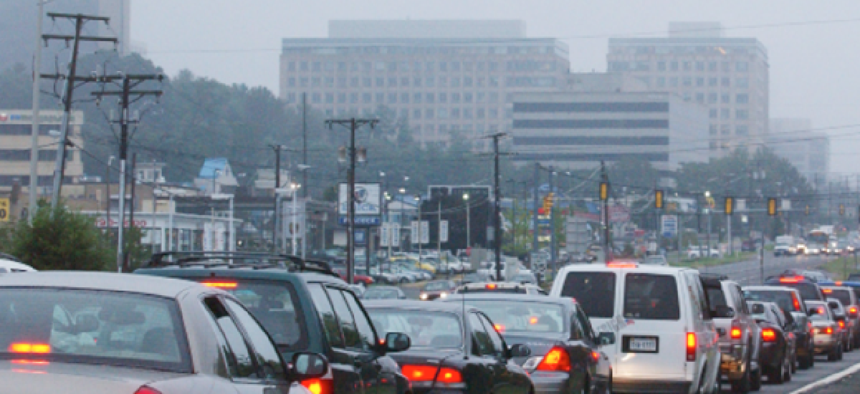Beltway bots: Virginia to test self-driving cars


Connecting state and local government leaders
The vehicles will be tested on more than 70 miles of roadway in Northern Virginia – some of the most congested corridors in the United States.
Virginia will open up more than 70 miles of highway to self-driving vehicles as part of its Virginia Automated Corridors initiative, which will use state roads and test facilities for automated-vehicle testing, certification, and migration towards deployment.
The vehicles will be tested on more than 70 miles of roadway in Northern Virginia, including Interstates 66, 495 and 95, as well as state routes 29 and 50 – some of the most congested corridors in the United State, according to a Richmond Times-Dispatch article. The Virginia Smart Road, at the Virginia Tech Transportation Institute, and the Virginia International Raceway will also host the testing.
The Virginia Tech Transportation Institute will oversee the project, which integrates a range of technologies including:
- High-definition mapping of real-time traffic and incidents.
- Cloud technology for intelligent routing and location information.
- High-precision global navigation satellite systems for accurate localization.
- Dedicated short-range communications and cellular technology to support connected-vehicle capabilities.
- Data acquisition systems.
Virginia is not alone in its push to support autonomous vehicle developers. Iowa’s Transportation Department Director Paul Trombino, recently announced that his state is considering opening a slow-speed road in Iowa City specifically for self-driving cars. The Gazette reports the move is an effort to get Google and other developers interested in running their tests in the area.
Michigan also offers research, development and testing support. In Detroit, the newly launched Michigan Mobility Initiative supports the research and development of self-driving cars and other innovations, and Ann Arbor plans to create the Connected Vehicle Development Center for developers to test their cars and other innovations.
The University of Michigan, meanwhile, will open M City, a 4.2 mile track for students, engineers, and developers to test vehicles and software in order to analyze how self-driving cars perform in near real-world conditions, the Detroit Free Press reports.
And Google has spent more than five years testing its self-driving cars on the road, mainly in California, Florida and Nevada.
NEXT STORY: EIA widget embeds energy data




